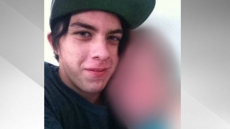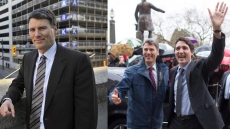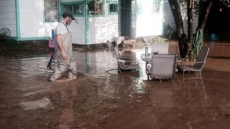VANCOUVER — An El Salvadoran asylum seeker who became a permanent Canadian resident after spending two years in sanctuary in a British Columbia church is looking to the Supreme Court of Canada to clear his "tarnished" name following another legal loss.
Writing for a three-judge panel, Justice Mark Noel of the Federal Appeal Court scuttled Jose Figueroa's most recent court bid to receive a certificate from Canada's minister of foreign affairs declaring that the man is not a terrorist.
"I am still in the process of evaluating the steps that I need to be taking in the near future, but for certain ... I do need to take this to the Supreme Court," Figueroa, 50, said in an interview on Tuesday.
Austin Jean, a spokesman for Global Affairs Canada, confirmed in an email the government was aware of the court decision made last Thursday but declined further comment.
Figueroa and his wife applied for refugee status after arriving in Canada two decades ago.
As a young man, Figueroa belonged to a student union that backed the Farabundo Marti National Liberation Front, or FMLN, a Salvadoran group Canada considered a terrorist organization, Figueroa said. The same group is now the country's elected government, he added.
The FMLN is not included on the list of terrorist entities compiled by Canada's public service department.

Former immigration minister John McCallum granted Figueroa a ministerial exemption in late 2015, which allowed him to leave the Walnut Grove Lutheran Church in Langley, B.C., and apply for permanent resident status.
Figueroa estimated the legal proceedings that have taken place since 2010 have cost his family $250,000, which required him to take out a mortgage on his home.
The former Salvadoran refugee, who is completing his first year of law school at the University of Victoria, has a son, 19, and two daughters, 16 and nine, all of whom were born in Canada.
"My family, they will require an apology from the government of Canada because of the way we have been treated. We have been here for almost 20 years — May 6 will be 20 years — and we are still being affected," he said.
"This is very un-Canadian and the current government should be taking a stand on this."
Figueroa said his court battles are also taking a toll on his studies.
"It's a very painful way to learn about the law. And costly," he said. "I am learning the hard way."




